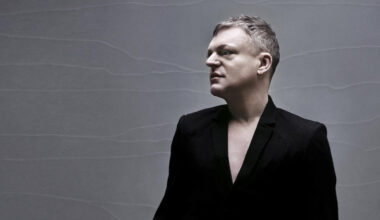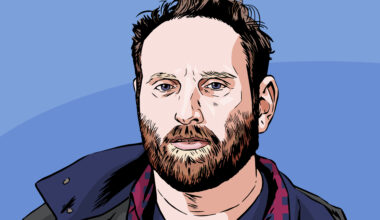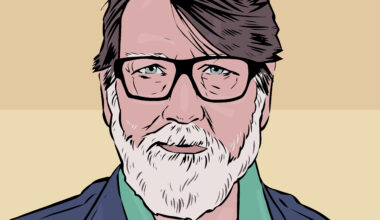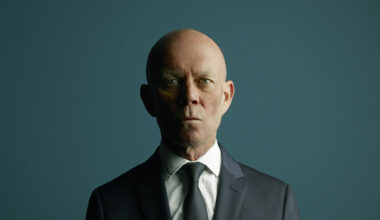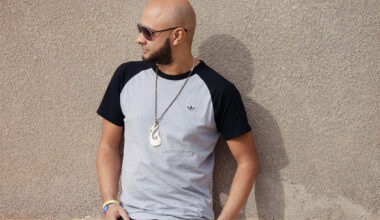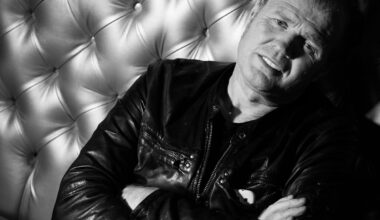With the release of his debut solo album, ‘Outta Sync’, musician, DJ and filmmaker Don Letts shines a light on what made him who he is
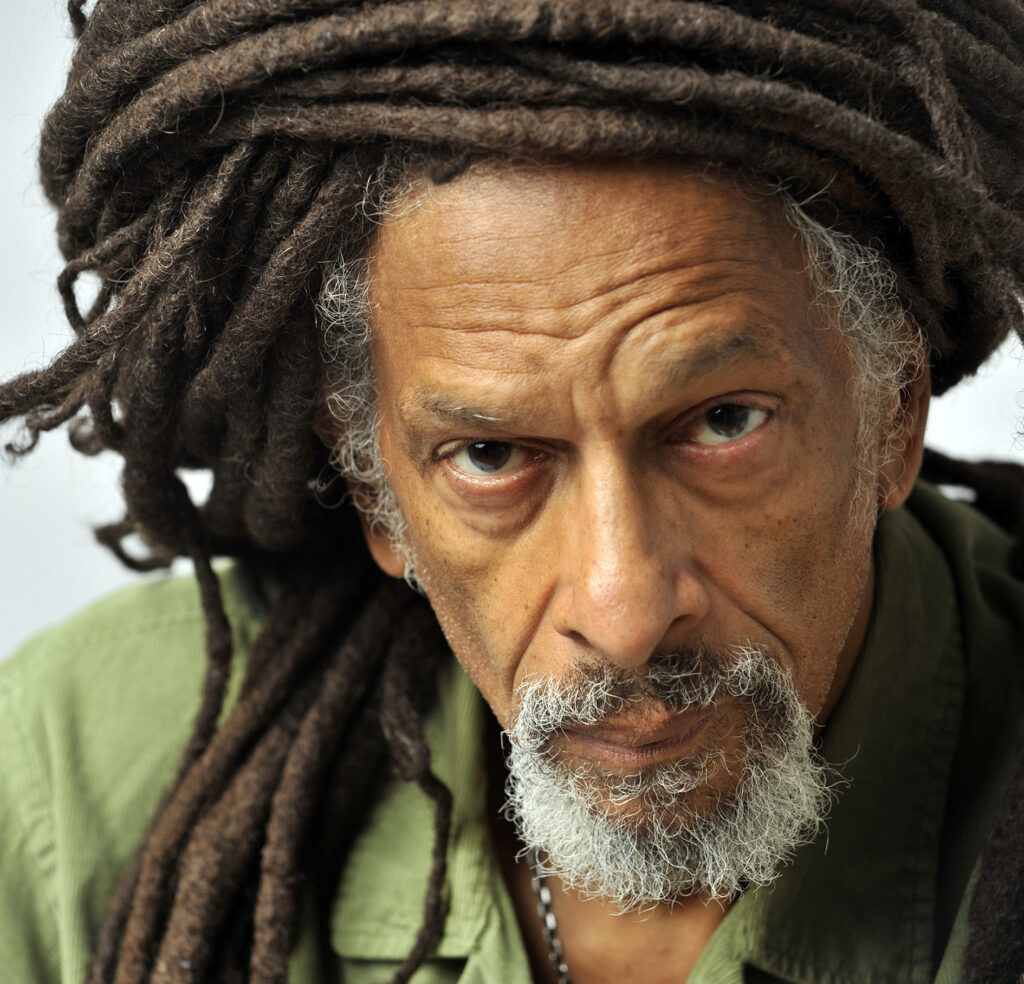
NO END OF LOW END
“I heard bass, coming through the music of Jamaica, without understanding why it spoke to me at first. Because bass is the island’s gift to the world, isn’t it? Not that they invented it, but they pushed it centre stage and made it a lead thing. We’ll give Jamaica that prop. The first dub I heard was from 1970, a Lee Perry And The Upsetters B-side called ‘Tackio’ [aka ‘Tackro’, the B-side to ‘Yakety Yak’], and this thing was so out of step with everything that was going on. We’re talking about dub before the word was even used!
“And I remember being struck by the sonics, the bass… the space. Then the next thing that connected all of this was ‘King Tubbys Meets Rockers Uptown’. Between that and Keith Hudson’s ‘Pick A Dub’, they forged in me this innate love of bass and dub culture that has stayed from that time to this. And I guess the whole thing was encapsulated within sound system culture.”
TROJAN RECORDS
“People don’t understand, it wasn’t Don Letts who started ‘Punky Reggae Party’, it was Trojan Records. That label and the pirate radio stations meant everything to me growing up as a kid. Trojan launched in 1968, the same year that Enoch Powell made his ‘Rivers Of Blood’ speech. So while his poisonous politics were fucking with the old people, Trojan came up with the antidote.
“It was music that really captured the imagination of my white mates. It was their money that took those records into the charts. Make no mistake, Trojan really sealed this country’s love affair with Jamaican music long before I did that Roxy shit. You know, John Lydon, Joe Strummer, Paul Simonon – they would have all been hip to fucking Trojan, man.”
THAT’S HOW I ROLL…
“The film that inspired me to become a filmmaker was ‘The Harder They Come’. To put it in context, it’s the early 70s, I’m this Black British thing that’s kind of a confusing concept, because it was a weird social experiment that had never existed before. We’re trying to work out where we fit in. You’re looking to America, there’s civil rights, the Black Panthers thing, but we weren’t American. You’re looking to Jamaica – parents are from Jamaica – to try to work out what your identity is. And part of that journey was seeing this film starring Jimmy Cliff. And it remains Jamaica’s most famous and best film.
“It was there that I was captivated and taken by the power of cinema to inform, inspire and entertain. I left the cinema thinking, ‘Hmm, I wouldn’t mind being a filmmaker’, which was a ridiculous idea for a young black man in the early 70s, trust me. Fast forward five years – punk rock explodes. My white mates are picking up guitars and getting their shit together. ‘Oh fuck. I want to pick up something.’ So I pick up a Super 8 camera, start filming the bands and end up doing a thing called ‘The Punk Rock Movie’.
“I’ve made about 350 music videos, a shitload of documentaries, including ones on Gil Scott-Heron, Sun Ra and George Clinton, and a couple of feature films, the first of which – called ‘Dancehall Queen’ – was a direct homage to ‘The Harder They Come’. If you ask any young person in Jamaica or from the Jamaican diaspora about the most famous film from Jamaica, they’re gonna say ‘Dancehall Queen’, and that is my proudest achievement to this day. Don’t ask an older person, they’ll say ‘The Harder They Come’. But ‘Dancehall Queen’ is a cult phenomenon and that meant a lot to this Black British kid who was trying to find his way.”
THE BEATLES
“My love of pop comes from The Beatles, without a doubt. I was fucking Beatles crazy. At one point in my life, I owned the second largest collection of Beatles memorabilia in this country, until punk came along and I got rid of the whole lot. I used to be an Apple scrub. I‘d sit outside their offices in vain waiting to see them come or go.
“Years later, I did get Paul to appear for a cameo in my Bob Marley video for ‘One Love’. And four years ago – and I don’t know how I popped up on his radar – he asked me to make a documentary for him called ‘Something New’. And that was a buzz – to sit down with a brother like this, interviewing this dude for two hours. Inside I was crying because it reminded me of the capacity of music to empower; to be sitting down and interviewing one of my heroes. Even now – I don’t want to go on about The Beatles – but fuck, what a body of work!”
SHAPING UP
“Somebody made a film about me recently called ‘Rebel Dread’, and I had my book out too called ‘There And Black Again’. I’m not bragging about my output, but it put me in this position where I’d go and do a lot of promotion – lots of Q&As and all this stuff. It’s been like a therapist’s couch, and it’s kind of an interesting dynamic, because it makes you check your shit. And one of the questions that kept coming up was, ‘Where do you get your confidence from?’. That’s something I really thought about, and I realised, society made me that way.
“Growing up in the 60s and 70s, I was made to feel like shit. There was the obvious racism, but it was more pervasive than that. At school they’d show me pictures of a white Jesus Christ. That’s perfection – I have a fucking standard – you know what I mean? So the reason that I was gonna get my shit together and get tooled up, ideas-wise, was to prove the opposite.
“Growing up they’re saying, ‘Don, you can have equal opportunities’, they’re not teaching you about slavery, and you should apparently feel fucking grateful to be here. Without that, I might not be Don Letts, I might be this passive individual. So thank you England for treating me like shit when I was a kid because you made me the animal I am today.”
‘Outta Sync’ is out on Cooking Vinyl. ‘There And Black Again: The Autobiography Of Don Letts’ is published by Omnibus
